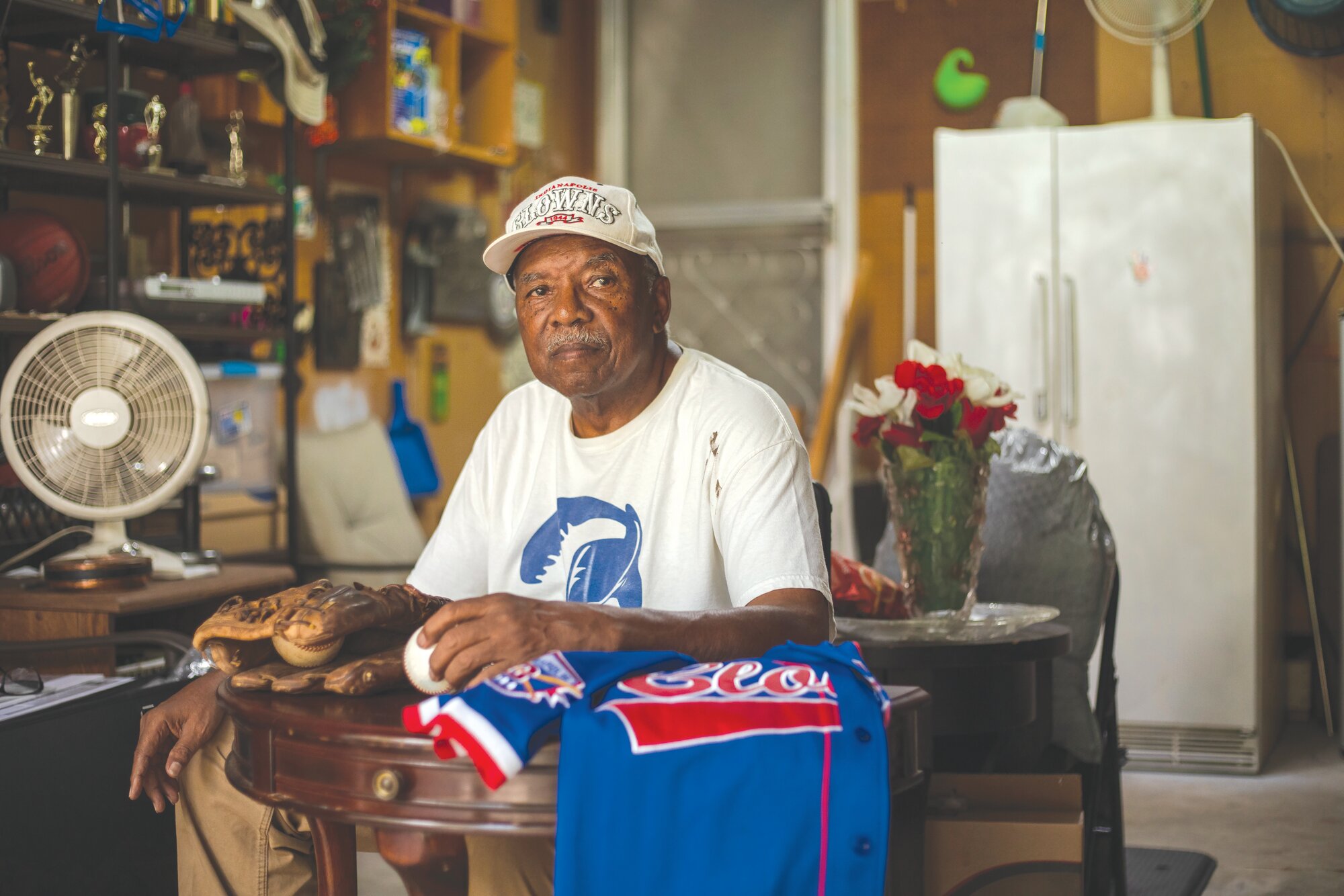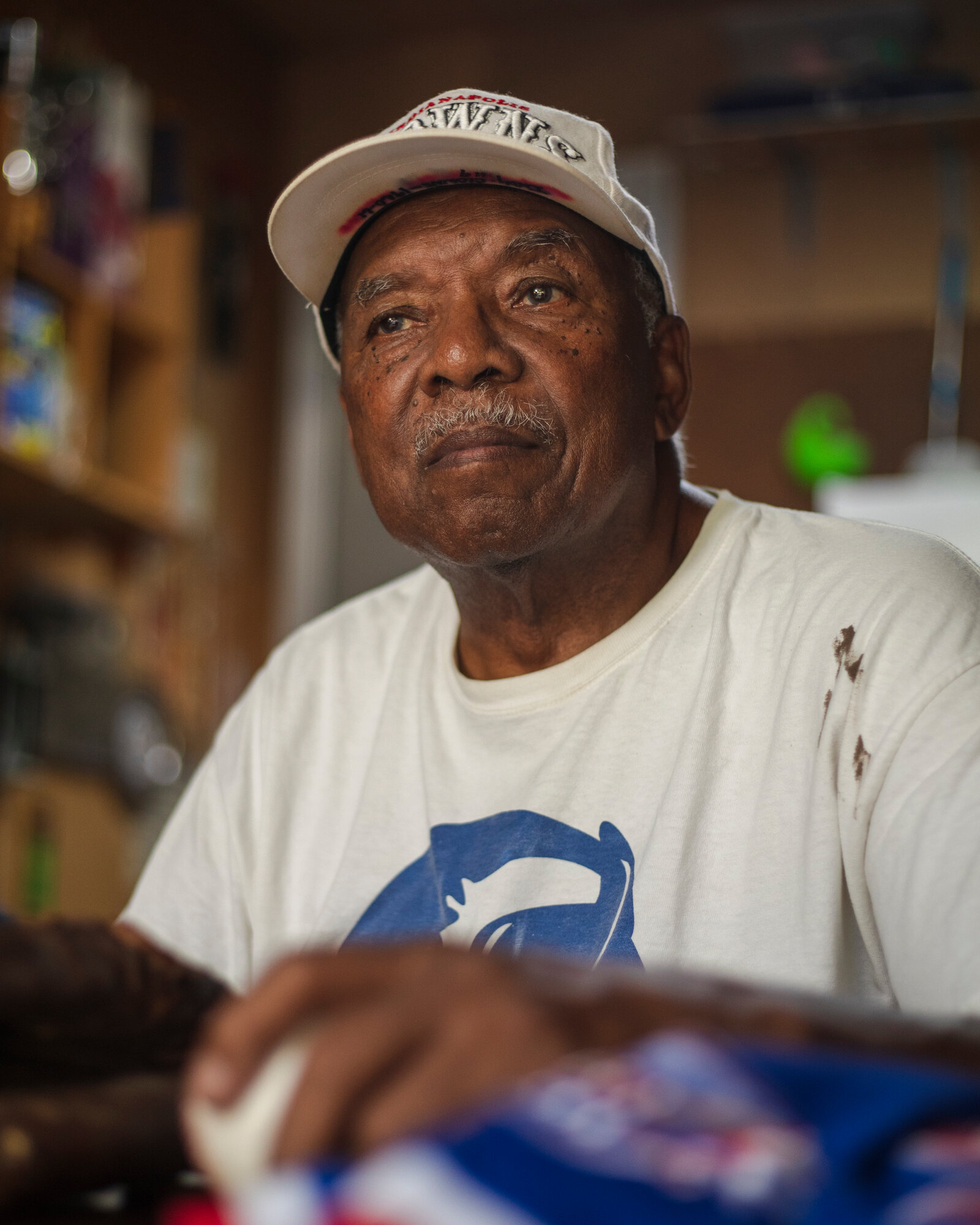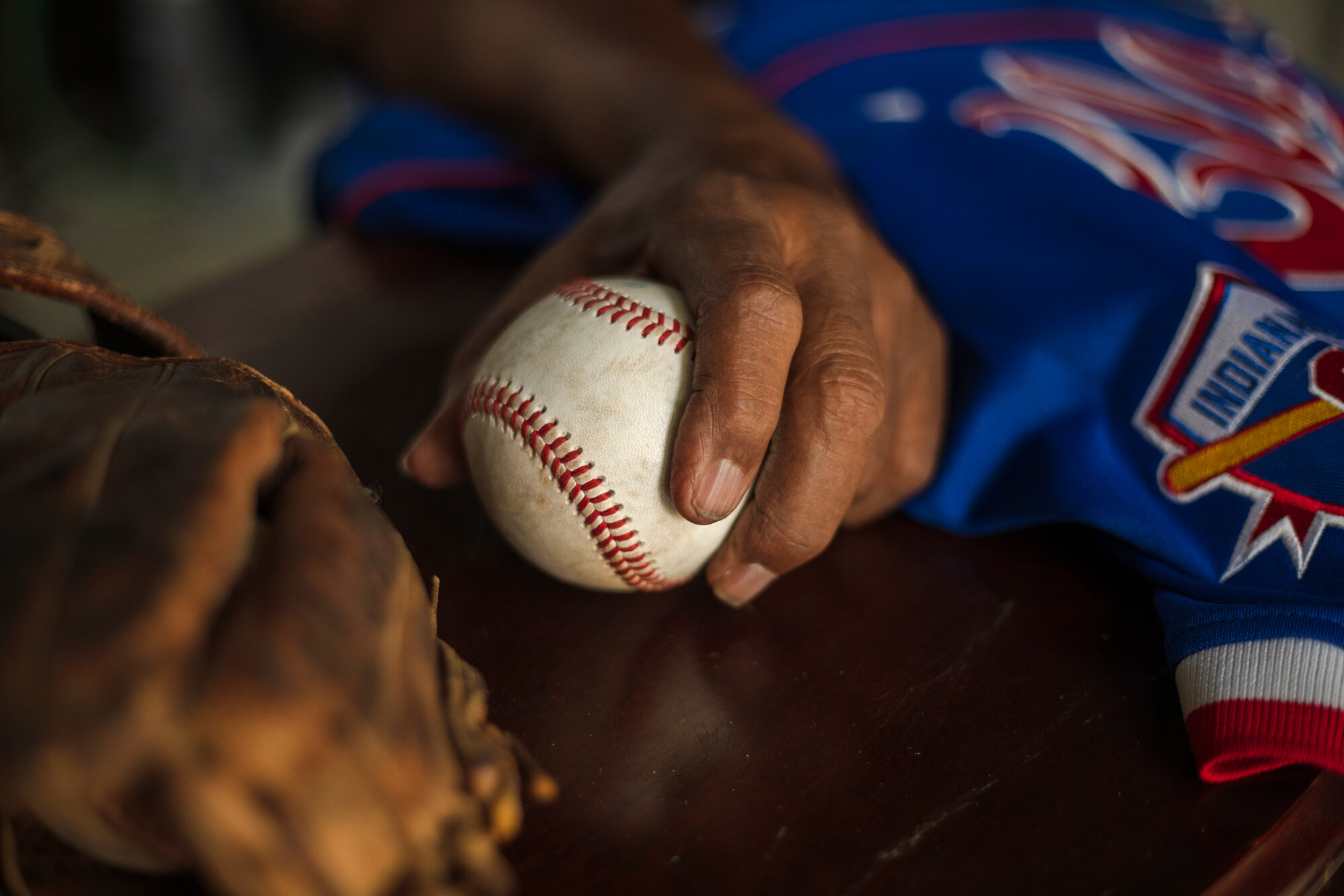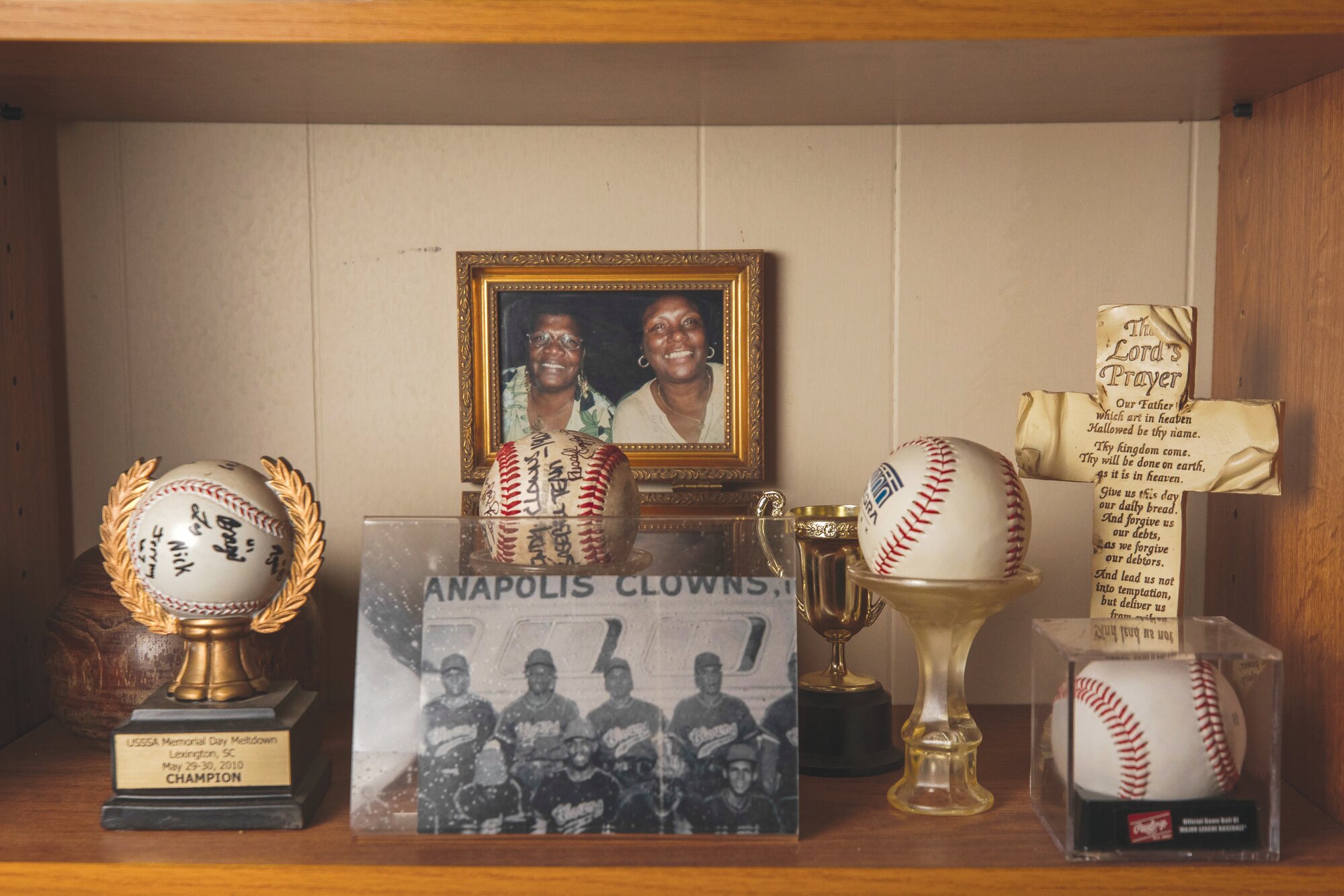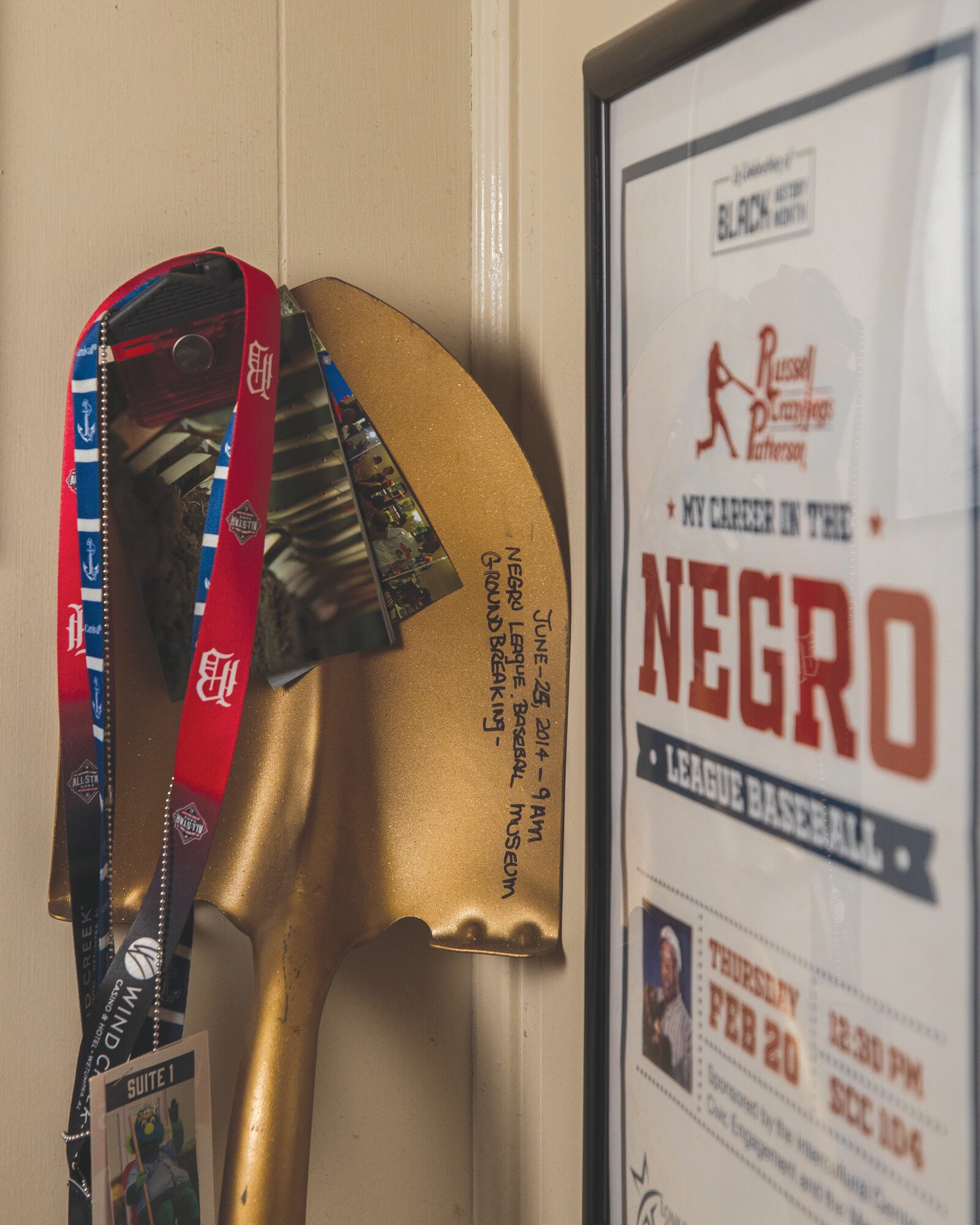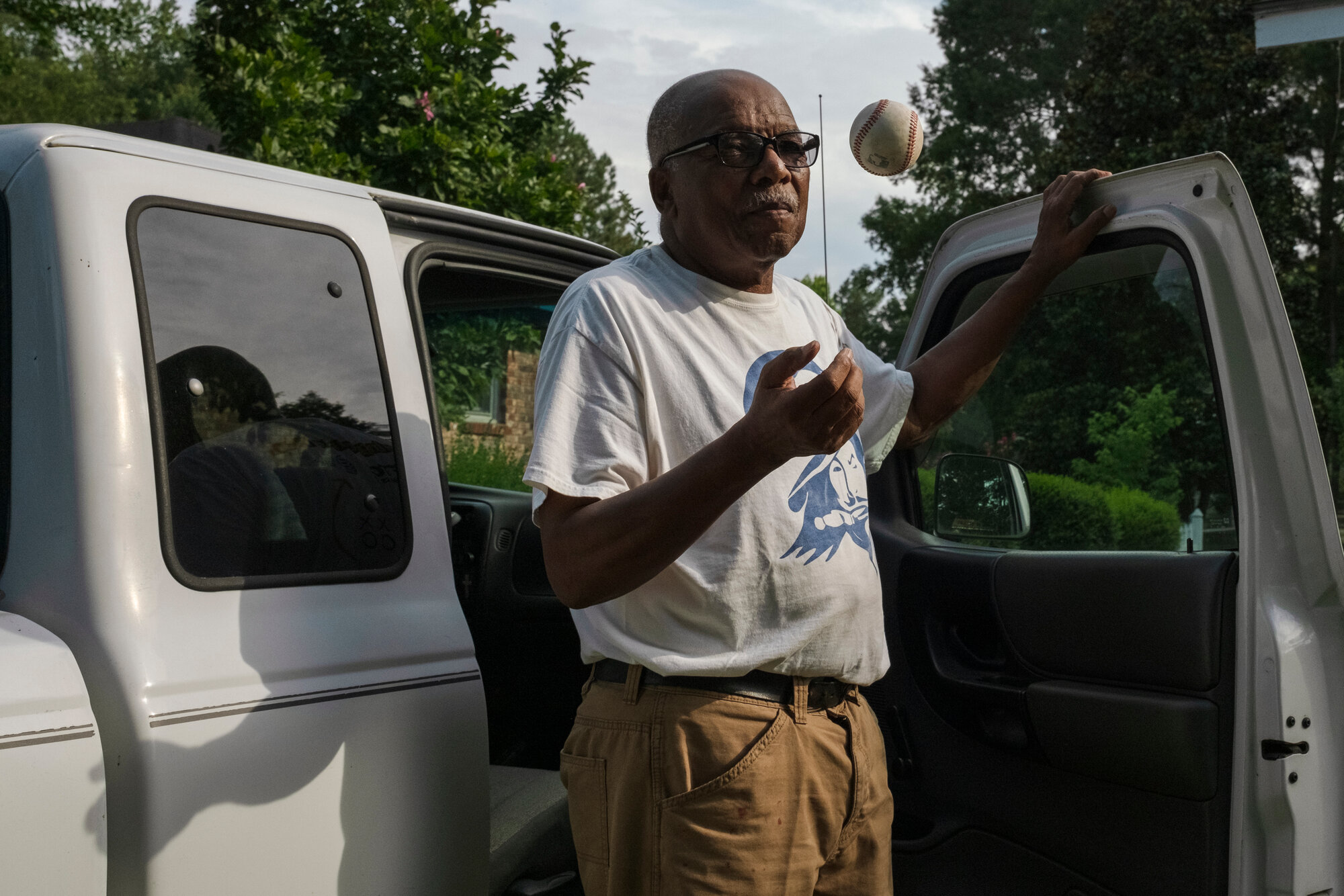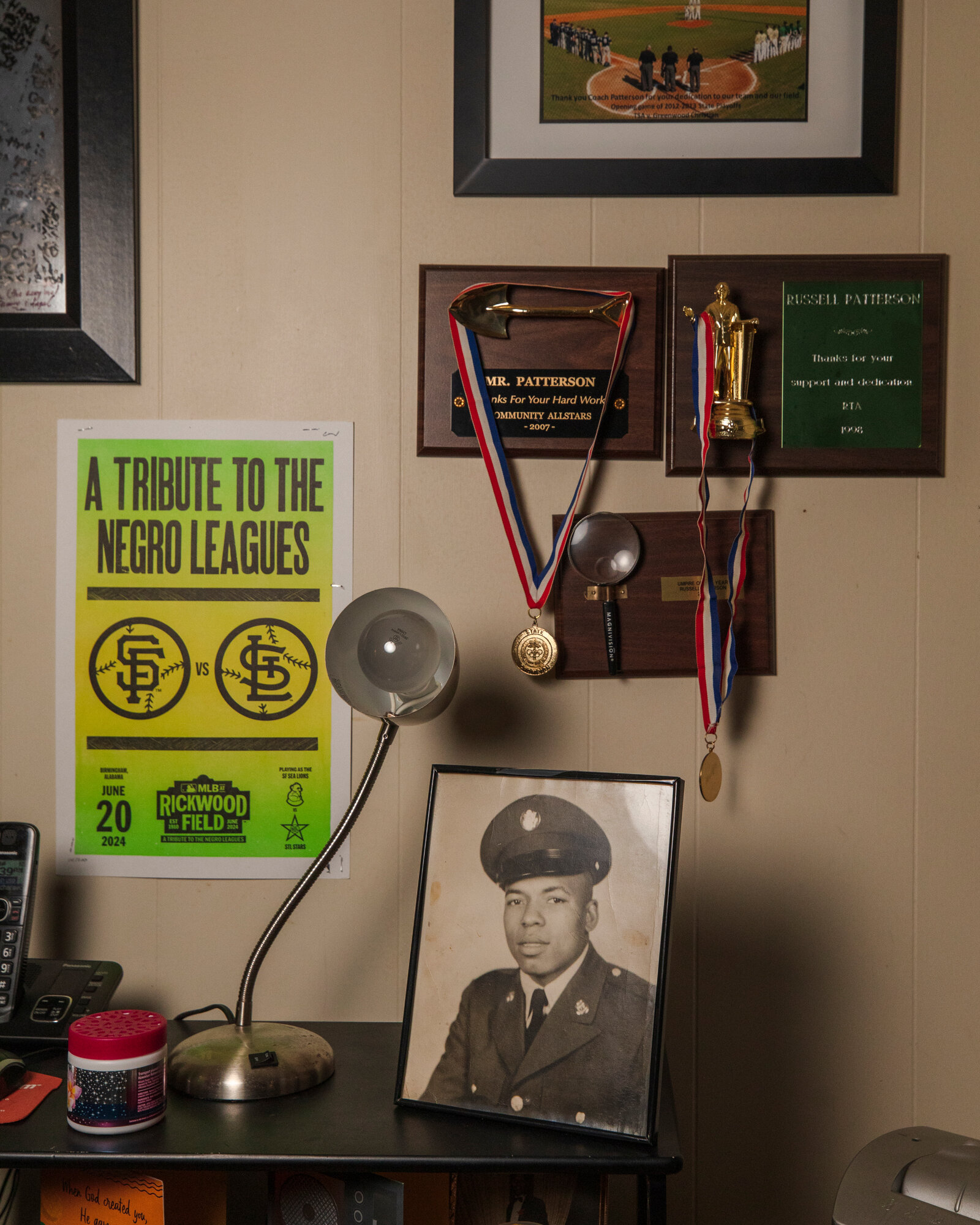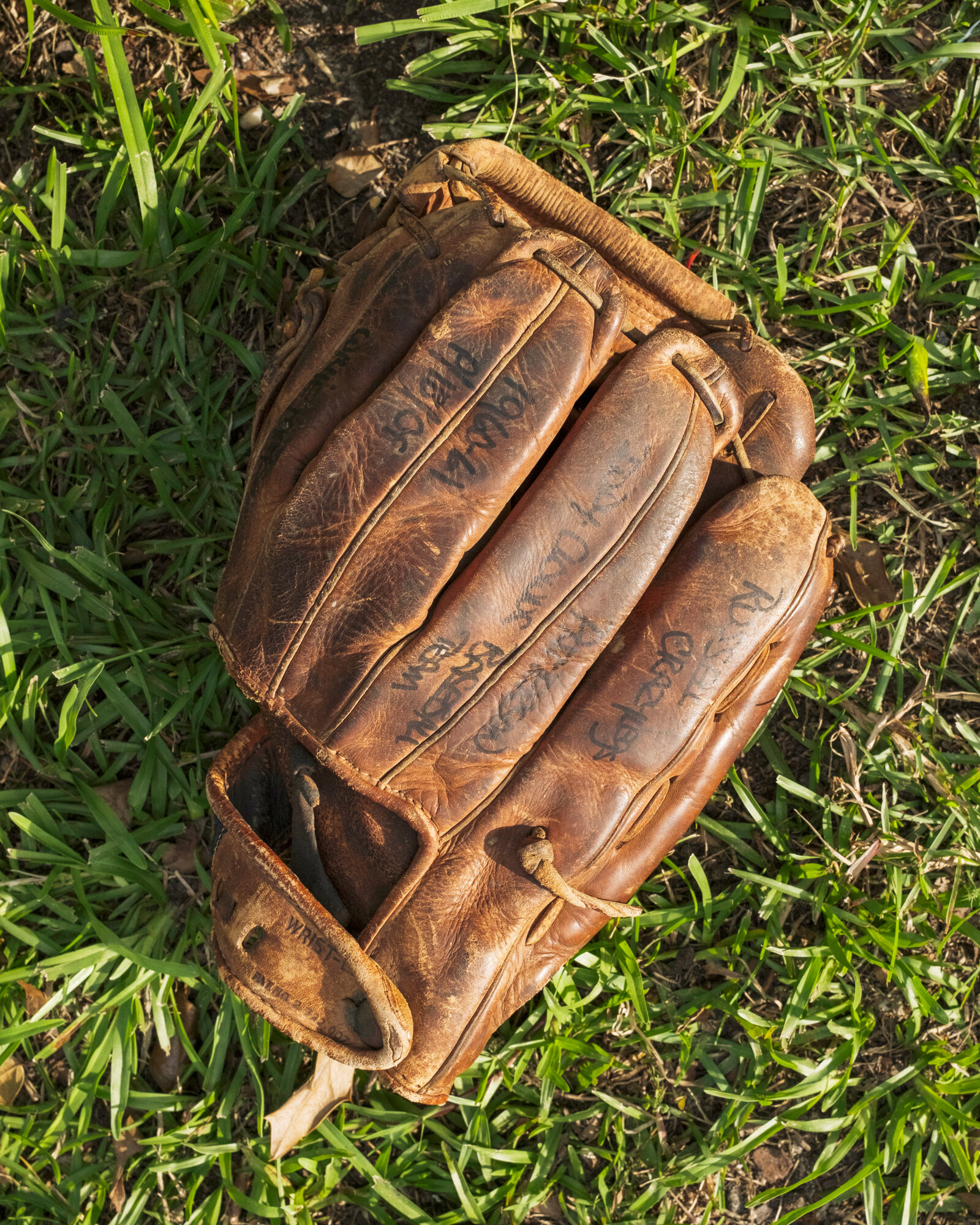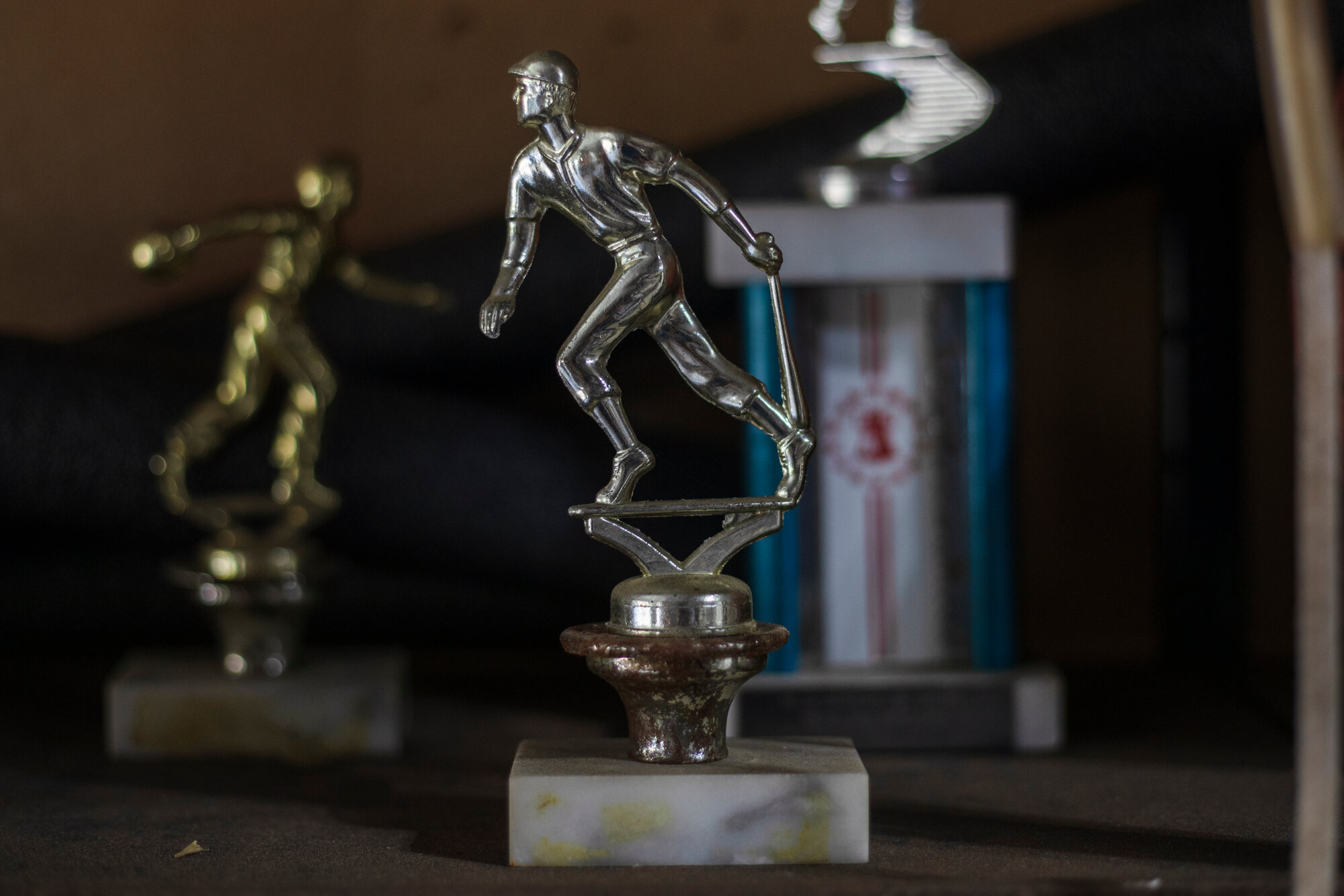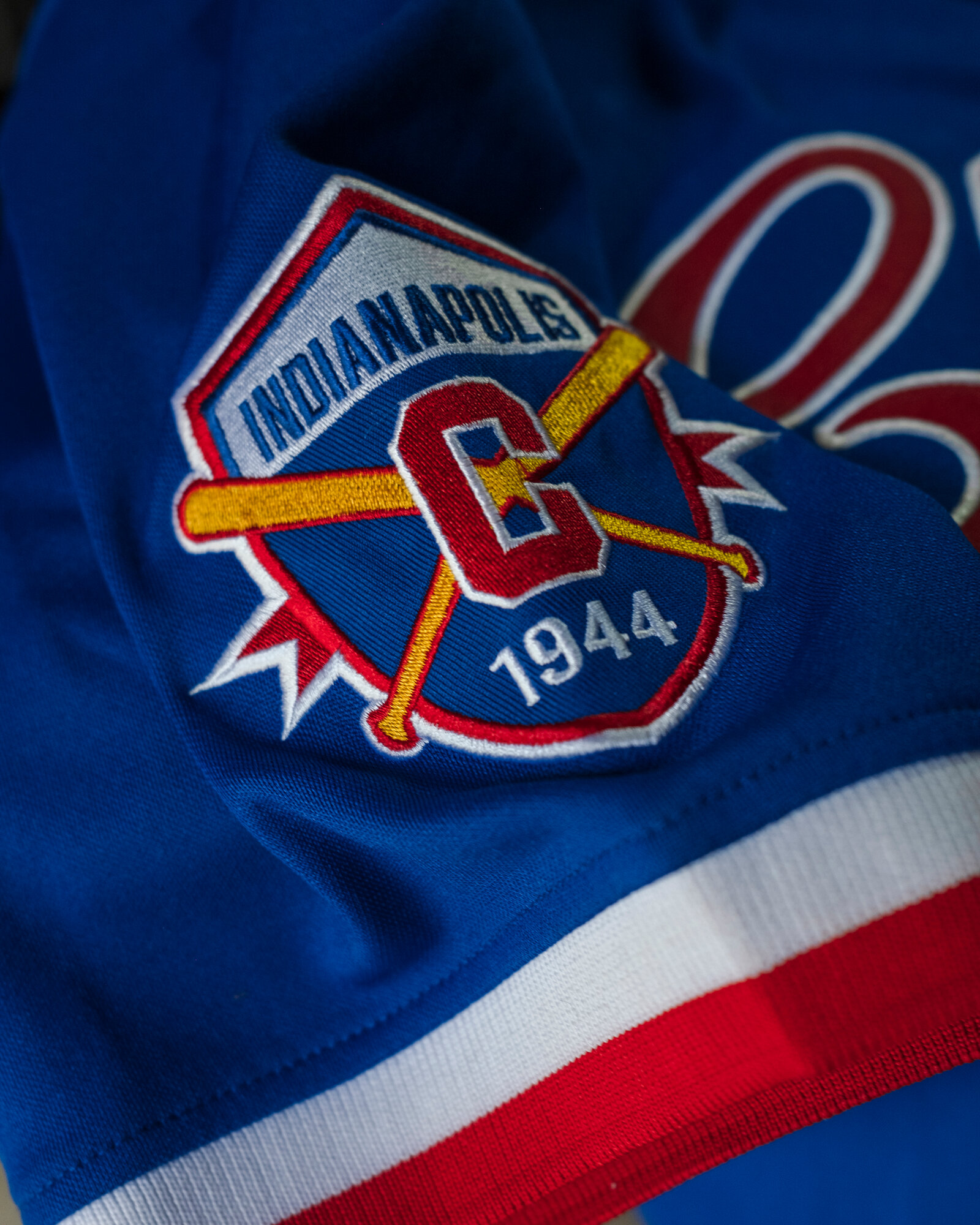Russell 'Crazy Legs' Patterson reflects on spotlight finally shining on Negro League
tim@theitem.com
Russell Patterson is a man like few others.
The 85-year-old former Negro League player known as "Crazy Legs" still has as sharp a tongue as he did when he suited up for the Indianapolis Clowns in the early 1960s. He's quick to make a joke or tell a tale of his wild upbringing in the sport of baseball, as he traveled across the South for any opportunity he could latch onto to play his favorite sport.
"We played ball because we had to play ball," Patterson said while recounting memories of his playing days, which included a stretch of his career in Paterson, Virginia, where he played for three teams at the same time under three different names in order to quench his hunger for the game. "When I got into the Negro Leagues, you either played or you went home; there was no beating around the bush."
Patterson is a walking museum, a fact that is evident by the number of times he travels to tell stories from his career that spanned over three decades. His house is full of memorabilia, postcards he collected from different stops in his career and newspaper clippings from both his time in the sport and more modern stories of the work of Cam Perron, a prominent Negro League historian whom Patterson has grown to know over the years. The former pitcher, first baseman and outfielder still has the glove he played with during his days with the Clowns on top of different bits and pieces from his career.
Maybe above all, Patterson is a man who demands respect. He's had conversations with representatives from Major League Baseball, including Commissioner Rob Manfred, and the MLB Players Association, among them Executive Director Tony Clark, as the organizations worked to bring the Negro Leagues more into the spotlight. In those talks, he spoke with no uncertain terms when discussing the treatment of former players.
"I tell them, 'You're all full of s...,'" Patterson said with a laugh when speaking about a phone call last fall. "Who gives a damn what happened in 1962? We know it was racism. That's why we had the Negro Leagues. I'm worried about now, the guys who came from Alabama out of the mines."
Things have changed since that phone call.
The MLB made a few major announcements in late May, though some of the details caught more attention in the national media than others.
The headline-grabbing move was the decision to integrate Negro League statistics into the MLB record books. The league worked with a company called Seamheads and then went through a review process with the league's official statisticians, the Elias Sports Bureau. Suddenly, MLB has a new leader in batting average, slugging percentage and OPS (on base plus slugging percentage), and that man is former Homestead Grays and Pittsburgh Crawfords catcher Josh Gibson. That's all fine and good, but for players like Patterson, who spent two years in the Negro Leagues with the Clowns on top of three decades bouncing around different leagues, the other announcement was a little more important. MLB and its players association is expanding the financial assistance programs for living Negro Leagues players. Even athletes with shorter tenures like Patterson will receive annual financial benefit.
"That's my main thing," a chuckling Patterson said. "I told them I went through a lot."
In Patterson's eyes, both announcements showed something he's been asking for his entire life: respect.
"Whether they give me anything or not, I'm just glad and happy that somebody is recognizing what I did," he said. "I told them I don't care if you give me a penny, but you're going to honor what we did. We busted our butts."
Patterson has been busy recently traveling around for the Negro Leagues. He started with a trip to Chattanooga on June 14. He spent a couple days there, signing autographs and attending a game for the local minor league squad, the Lookouts, against the Montgomery Biscuits. They wore the jerseys of the Chattanooga Choo-Choos, the former Negro League team in town. He then returned to his home in Savannah, where he went to the Telfair Museum to speak on his career. The climactic finale was a trip to Birmingham on June 20. He attended a game between the St. Louis Cardinals and San Fransisco Giants in Rickwood Stadium, the former home of the Birmingham Black Barons and Willie Mays.
Patterson still remembers allowing a monstrous home run to Willie Smith of the Black Barons during his last game of the season with the Clowns in 1960. He shrugged off his catcher and threw a curveball to the fellow lefty, and Smith sent the ball into orbit.
"If you ever go to Alabama and Rickwood Field, look up in right field," Patterson said. "I tell people all the time, you remember that balloon that China sent? That was my ball from 1960, still going. My manager made me stand out in that field and run, run, run."
Crazy Legs is always happy to give his time to the Negro Leagues, doing whatever he can to make sure people remember what they went through. He's glad the MLB is following suit.
"I am not a spokesman for the Negro Leagues, but I try to speak so people know the history," Patterson said. "We talk about mostly baseball, but it's talking about Black history. I eat this stuff up because I love it."
More Articles to Read

